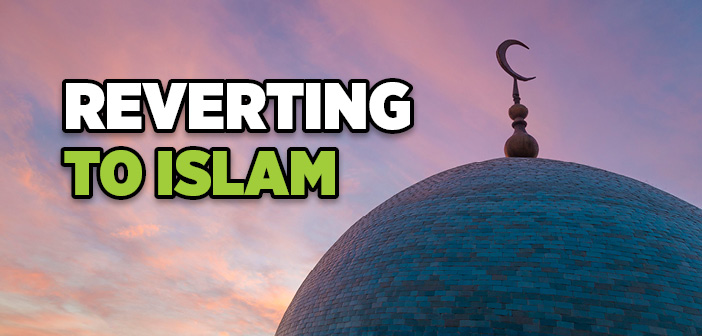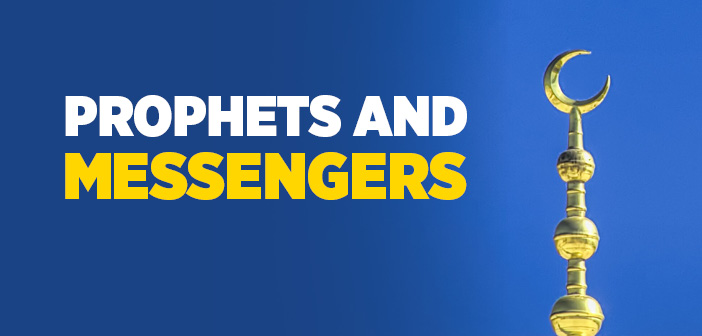Who is prophets? How many prophets and messengers are there?
In the ’Qur’an it is said, “Truly in the heavens and the earth are signs for the believers. And in your creation and in that which He spreads [over the earth] from among the beasts are signs for a people who are pious. And [in] the alteration of the night and day, and the nourishment that God sends down from the sky, then by which He revives the earth after its death, and [in] the dispensation of the winds are signs for people who discern. These are the signs of Allah. We recite them to you with truth. So in what account after Allah and His signs will they believe?”[1] These kinds of verses (ayāt) in the Qur’an, which in Arabic is the same word used for sign (ayah) from Allah, remind the reader that every aspect of creation is a message and throughout human history that message has been sustained through the messengers,“Every nation had a messenger.”[2] As stated in the introduction to this book, Islam does not view itself as a fifteen hundred year old religion but rather a faith that has been revealed in various forms throughout human history. The word Islam in this sense denotes not only the final form of the religion revealed to Muhammad but also any faith that was revealed before him that subscribed to the ideology of believing in the One and the Unique God. Islam in this sense means submission to God; in the Qur’an the various messengers and their followers before Muhammad, who propagated their faiths are therefore described as muslimūn (the ones who submit to the One God).[3] Islam describes all these faiths as tailored differently for their time and society, nevertheless, all re-iterated the same message of the oneness of God. Whatever form of revelation was sent to the prophets and the messengers throughout human history, was not entirely new. In essence these prophets and messengers constituted, renewed and recalibrated forms of the original divine message, exhorting human beings to reflection, remembrance and a proper understanding of God.
So what and who is a prophet (nabi)? It is common to misunderstand the word prophet in our contemporary times to mean that it refers to someone who prophesizes the future. However, in Islam the Arabic word nabī has no such connotations, even though some prophetic messages have been known to be connected to future events. The root of the term ‘nabī’ in Arabic derives from two meanings; to give news and to be exalted by God. Thus, a prophet (nabī) in Islam is not in any way divine but is seen to be an exceptional mortal human being who is chosen by God and is given a communiqué to convey to the people. In addition to the term ‘nabī’, Islamic primary sources frequently use the term ‘rasūl’ (messenger) for prophets. The Arabic term ‘rasūl’ refers to a person that conveys messages. From the overall usage in the Qur’an it is clear that the term ‘nabī’ is wider in its scope than the term ‘rasūl’. The term nabī (prophet) denotes every person chosen by God to receive a message, whereas, the term rasūl (messenger) denotes the relatively small number of prophets who were chosen to receive an oral and/or a written scripture that was the basis of the revealed faith. Thus, a messenger is always also a prophet but not vice versa. For example, the most known of the prophets who were also messengers in Islamic theology, are Adam (the first prophet and messenger), Noah, Abraham, Moses, Jesus and Muhammad (who is accepted as the last prophet and messenger of Allah). Then there are further examples of those individuals mentioned in the Quran who were prophets but not messengers, such as, Ishmael, Isaac, Jacob and Joseph; who all followed the scriptures and laws given to the Prophet Abraham. Similarly, prophets such as Aaron, Samuel and John the Baptist followed the main scripture and laws given to the messenger Moses. In the Hadith literature Muhammad spoke of 124,000 prophets, elected from all nations from the time of Adam to himself; whereas, he only mentioned 313 or 315 out of them to have been messengers i.e. someone who was chosen to receive a scripture and establish a revealed religion.[4]
At this juncture it is very important for new Muslims to understand the concept of the inimitability (ʿisma) of the prophets. According to the sources, all prophets are preserved from erring in the reception and the deliverance of the message revealed to them by Allah. It does not imply that they are not human or that they are free from human weaknesses. However, it needs to be emphasized that according to Islam, all the prophets and the messengers are maʿsūm (protected) from moral decadence and sin. The prophets have been recognized to have possessed four necessary attributes[5]; they had to be truthful (sidq), trustworthy (amāna), proclaim the Divine Word (tablīgh) and had to be sagacious and intelligent (fatāna); in other words, inerrancy is acknowledged as a very important criterion for the station of a prophet and a messenger. Furthermore, the prophets and messengers are also acknowledged to have possessed qualities that cannot be imitated. The most well-known of these merits is the ability to perform miracles (muʿjizāt), which can only be executed by the prophets of Allah, the rule being that it is only achieved with the leave of Allah. Some of the well-known miracles of the prophets include healing by the Prophet Jesus and the parting of the red sea by the Prophet Moses.
To reiterate, Allah has only revealed one religion (i.e. the way of submitting to the One God), but He sent messengers with different laws and paths relating to that one religion, throughout time. Prophets continued to be chosen by God to lead people back to the original teachings, every time the original teaching was altered, until the last prophet Muhammad, who brought the final law and path, superseding all past revealed faiths. In the Qur’an, Muhammad (peace and blessings be upon him) is given the title, ‘the Seal of the Prophets’, meaning that he was the last human being to receive such guidance and revelation.[6] Prophet Muhammad elaborated on this title in his farewell sermon, “O People, no Prophet or Messenger will come after me and no faith will be born after me.”[7] It is a major part of the Muslim creed to accept the designation of Muhammad as the ‘Seal of the Prophets’, meaning that there will be no new Shari’ah after Muhammad nor will there be an appearance of a new religion or Prophet/Messenger. This also signifies that Islam is accepted as the final religion, and Allah, may He be glorified and exalted, has Himself taken a pledge that His religion of Islam will stay pure until the Day of Judgment. [8]
[1]. Q. 14:3–6[2]. Q. 10:47[3]. Joseph Lumbard, (2006), Prophets & Messengers of God, in Vincent J. Cornell (ed.), Voices of Islam, (Praeger Publishers Inc), p. 103.[4]. Sachiko Murata & William C. Chittick, (1996), The Vision of Islam, (London: I.B. Tauris Publishers), pp. 133-134[5].It is also agreed that the four attributes necessarily impossible for the prophets are the opposites of the previous four, namely lying, treachery, concealing what they were ordered to reveal, and feeblemindedness. The one attribute possible for the prophets is that any human state that does not detract from their rank, such as eating, sleeping, marrying, and illnesses not repellent to others; although God protected them from every offensive physical trait and everything unbecoming them, keeping them from both lesser sins and enormities, before their prophethood and thereafter.[6]. Q. 33:40[7].Sahih al-Bukhari, Hadith 1623, 1626, 6361[8].For further information on the Messengers/Prophets of God please see Amjad M. Hussain, The Muslim Creed: A Contemporary Study of Theology, Cambridge: Islamic Text Society, 2016, pp. 108-162.
Source: Islam For New Muslims An Educational Guide,Assoc. Prof. Amjad M. Hussain, Erkam Publications





